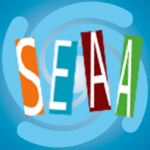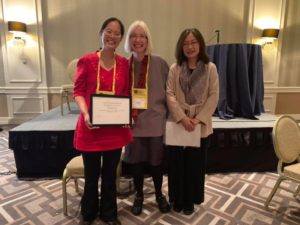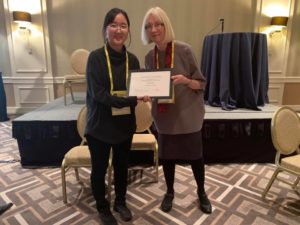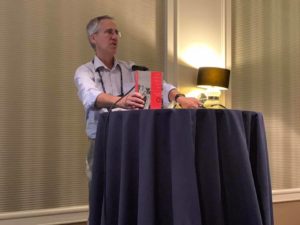In Lieu of the Annual Business Meeting for Members
Dear SEAA members,
I hope this finds every one of you safe and healthy.
Due to the pandemic, the American Anthropological Association annual meeting for 2020 was cancelled and thus, in lieu of the SEAA business meeting, I am reaching out to you to recap the SEAA activities this year.
The SEAA election yielded two new councilors who start from January 1, 2021, Jennifer Prough (Associate Professor of Humanities and East Asian Studies, Valparaiso University) and Yi Wu (Assistant Professor of Anthropology, Clemson University), and one new student councilor, Timothy Quinn (PhD candidate, Rice University). The current board members are shown here. The list will be updated in the new year reflecting the new member details. The 2021 board is as follows:
President: Sonia Ryang
Incoming President: Ellen Oxfeld
Outgoing President: Glenda Roberts
Secretary: Satsuki Kawano
Treasurer: Isaac Gagne
Councilors: Andrew Kipnis, Nicholas Harkness, Marvin Sterling, Jie Yang, Jennifer Prough, and Yi Wu.
Student Councilors: Yifan Wang and Timothy Quinn.
Media Manager: Guven Witteveen (by appointment)
Our current SEAA Column Editors for Anthropology News are Hanna Pickwell and Elizabeth Rodwell (by appointment).
The SEAA board thanks the outgoing councilors, John Cho and Gavin Whitelaw, and student councilor, Yukun Zeng. Also, we thank Shuang Frost and Heidi Lam for their past service as SEAA Anthropology News column editors.
For the 2021 SEAA election, we currently have a list of candidates interested in running for officer positions. At this time, I would like to ask SEAA members to sign up if they would like to run for officer positions during the 2022 election. Nominations are also welcome. If elected, the work starts on January 1, 2023. If you are interested in adding your name to this list (or nominating someone else), please get in touch with me directly (Sonia.ryang@rice.edu). Often this ends up on the first come first served basis and so please write to me sooner rather than later.
This year, we held competitions for the Francis L. Hsu Book Prize, Outstanding Graduate Student Paper Prize, and David Plath Media Award. The committees had a difficult task because the submitted works were all of high quality and impactful. After careful consideration, the committees reached their conclusions, and the winners’ names, along with short comments from each committee, are posted on our website. I will repeat the names of each winner here:
2020 Francis L. Hsu Book Prize
Winner: Suma Ikeuchi, Jesus Loves Japan: Return Migration and Global Pentecostalism in Brazilian Diaspora (Stanford University Press, 2019)
Honorable Mention: Miriam Driessen, Tales of Hope, Tastes of Bitterness: Chinese Road Builders in Ethiopia (Hong Kong University Press, 2019)
2020 Outstanding Graduate Student Paper Prize
Finalist: Justin Haruyama, Reconfiguring Postcolonial Encounters: A Pidgin Language and Symbolic Power at A Chinese-Operated Mine in Zambia (University of California, Davis)
2020 David Plath Media Award
Winner: Untold (기억의 전쟁) (2018, documentary, 79 min.)
Director: Bora Lee-Kil
Honorable Mention: Sending Off (おみおくり) (2019, documentary, 76 min.)
Director: Ian Thomas Ash
Turning to SEAA activities, in August 2020, amidst ongoing police brutality and racial oppression in the US and elsewhere, our section posted the SEAA statement against police brutality and anti-Black racism. I want to thank again the members who expressed their support for this statement. In this statement, we made specific pledge and I want to repeat that here:
- To organize a round-table discussion on race and racism in Asia in the next annual meeting of the American Anthropological Association, with similar discussions potentially held on a regular basis in future meetings.
- To promote the participation of African American and other African diasporic peoples in their anthropological research of East Asia in our home departments and institutions.
- To consciously promote the participation of other racial and ethnic groups traditionally under-represented in the anthropological study of East Asia. These include Latinx and Native American peoples and perspectives. For instance, the SEAA recognizes that a Latinx-Asian scholarship that traverses Latin America and East Asia, or the comparative study of global indigeneities (Native Americans, Taiwanese aboriginal groups, and the Ainu of Japan, for instance), might represent rich arenas for further scholarly research and another dimension of the global solidarity against racial discrimination.
- To promote research and other forms of scholarly reflection comparing the complicities between the colonial and anthropological enterprises as commonly reflected in the African and Asian diasporic experiences.
- To create a culture of inclusion in the SEAA as well as in the home departments and institutions of all members. This includes addressing how white supremacy operates within our Society and in East Asian Studies generally. It includes recognizing how Euro-American epistemologies dominate the discipline, in ways that potentially crowd out other approaches to understanding and exploring the region and its peoples.
- To support lectures, film screenings, and other public events by scholars and artists whose work center on the exchanges between African and Asian diasporic peoples, especially those works that bear an anti-racist concern.
- To encourage and facilitate an ongoing exchange amongst our members in order to develop inclusive syllabi, reading lists, and relevant materials and where possible, create a repository of such materials on the SEAA website.
Although the statement was posted in August, the actual work toward our pledge is ongoing. At this point we are not sure just yet in what form the AAA meetings will be held in 2021, but if you are planning on organizing a panel (just in case the meetings go as usual), please do keep the above pledge in mind. And, please keep us posted, via SEAA website or EASIANTH, about what kind of changes you are making in order to address diversity and inclusion and fight racism in your teaching and research.
The challenges of the year 2020, starting with COVID-19 pandemic and closing with the US presidential election, showed us that more than any other time in modern history, we are faced with the need to reach out and work together with diverse groups and individuals in our effort to promote inclusion and fight against racism. This also applies to intellectual endeavors; in searching for new and more effective tools to critically explore our world, we need to reach out and find partners for collaboration and sometimes, we may find collaborators in rather unexpected quarters. Such a meeting would be the first step toward the culture of inclusion in research.
In a strange twist, because the pandemic created a work environment that connects us across continents and different time zones, via Zoom and other remote communication means, we are in fact discovering new possibilities and potentials for fruitful collaboration that we did not think was possible in the past. This is the key to the upcoming year 2021—that we engage, creatively and effectively, in international and interdisciplinary collaboration in teaching and research on a scale we have not seen before. Toward this end, I would like to encourage members to post their views, opinions, and reflections, in addition to news and event announcements, on EASIANTH in the coming year. Let’s use the listserv more. Needless to say, the SEAA board is always open to suggestions from its members regarding its activities. Should you wish to make any suggestions, please feel free to write to me directly (Sonia.ryang@rice.edu).
Finally, but not least important, I wish to draw your attention to the SEAA column in Anthropology News. Since the 2019 AAA meetings, our editors have published seven pieces written by SEAA members. The SEAA column continues to solicit submissions from members at all phases of their careers. If you would like to pitch an article idea relating to your original research, please email a short abstract to column editors Hanna Pickwell (hpickwell@uchicago.edu) and Liz Rodwell (erodwell@Central.UH.EDU).
I wish you all the best for the holiday season and joyful and productive New Year.
Sincerely,
Sonia Ryang
President, SEAA




